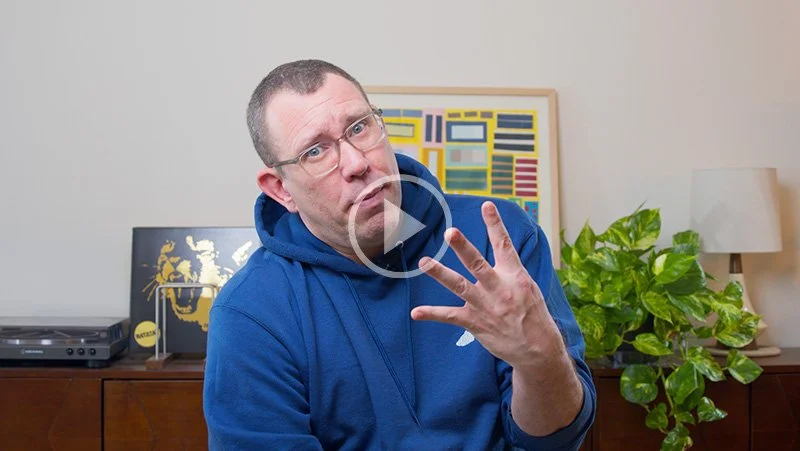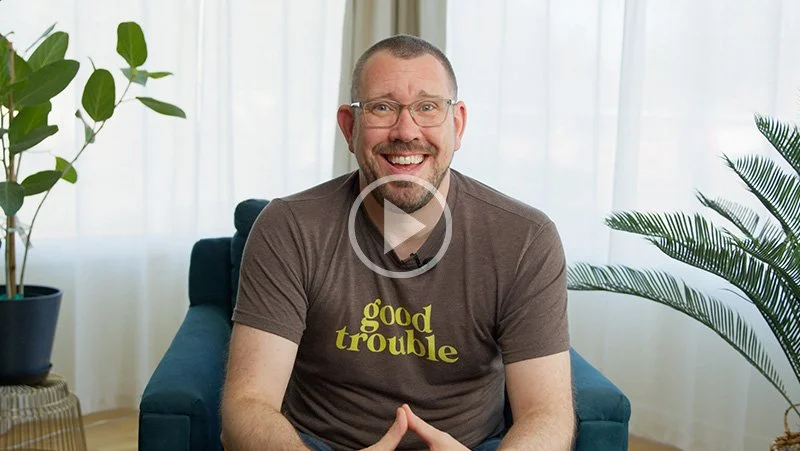Avoiding Difficult Conversations is Dangerous
Welcome to the #culturedrop. Every Tuesday, Galen Emanuele emails tools to advance leadership skills, team culture, and personal growth. No spam, just great content. Sign up now to get it in your inbox.
No one loves having difficult conversations, but avoiding them is dangerous for teams.
Challenging conversations and conflicts that go unresolved wreak havoc on relationships, morale, and team culture.
The long term impact of leaving situations of static or conflict unresolved is dysfunction.
“There is a significant amount of natural diversity that occurs when you put a group of humans on a team to work together or accomplish anything.”
It is inevitable in a workplace environment that conflict and challenging situations will arise.
There is a significant amount of natural diversity that occurs when you put a group of humans on a team to work together or accomplish anything. People have different working styles, communication styles, mindsets, priorities, ways of navigating conflict, different lived experiences, and a myriad of other factors that contribute to differences; age, race, gender, emotional intelligence, just to name a few.
And while that diversity is valuable to teams and companies for many reasons, it’s natural that along the way situations will arise between coworkers, colleagues, leaders, and departments that cause conflicts, strife, ruffled feathers, and misunderstandings of all kinds.
Avoiding tough conversations is common.
If a person does something to upset somebody else that they work with, or an employee is feeling that a situation is unfair or that they’re not being listened to for example, it’s pretty common for those situations to never get completely or adequately resolved.
This can take many forms and be caused by a number of things. A coworker may interpret an email from another department as having a rude, snarky tone, or someone might hear that someone else was badmouthing them behind their back. Or an employee might feel like their boss doesn’t appreciate them because they never give any positive praise or reinforcement, only critical feedback.
Many times employees, and humans in general, avoid addressing or confronting difficult situations similar to these. If you’ve ever been employed then you know it’s commonplace for someone who’s upset to tell everyone in the world about their situation other than the person who is the direct cause of their strife.
“Another way that humans are very diverse is in their ability, or inability, to navigate and respond to conflict.”
Badmouthing, gossip, ranting about others, and venting to coworkers, friends, and family members about difficult work people and situations is the way a fair amount of people deal with things in workplaces.
I personally feel that the reason many people avoid tough conversations is because in many situations it feels to risky to address the situation head on. Another way that humans are very diverse is in their ability, or inability, to navigate and respond to conflict.
It’s probably safe to say that all of us have had situations in our lives where we try to address a problem or share some difficult feedback with someone else and that person reacted horribly. Some people treat any amount of conflict like war, become emotionally volatile, behave badly and essentially freak out. Depending on how big (bad) the reaction is, the result can be a destroyed relationship and a big mess, rather than a resolution that makes the situation right.
As a result of a number of situations like that in each of our lives, we can learn to avoid addressing difficult situations head on due to the unpredictable nature of other human’s reactions. The fear of a bad reaction that makes things worse is real, and enough to stop people from seeking resolution. Especially if one of the parties has authority or power over another the stakes become even higher.
The impact of avoidance.
“When people don’t resolve these little instances of conflict or static between each other, the result is dysfunction.”
When people don't resolve these little instances of conflict or static between each other, the result is dysfunction.
These situations can quickly turn into strained relationships, resentment, drama, and toxicity which often also becomes low morale, people quitting their jobs, or becoming completely checked out mentally.
Unresolved issues are a huge source of morale issues and poor work culture on teams. Often, teams or some colleagues have a history of damage or some conflict a long time ago that never got resolved and it prevents the team from having a healthy culture.
“Leaders and companies need to be aware of the dangers of avoiding difficult conversations.”
Make it a priority.
Leaders and companies need to be aware of the dangers of avoiding difficult conversations.
Team members don’t typically have the skills or ability to navigate these situations by themselves. Providing employees with resources and skills to help them is worthwhile. There are countless books, and tools out there to help with this. Also, HR should act as a partner to team members in this capacity, providing guidance and facilitation for difficult conversations so that they can be resolved in a safe, productive way.
Prioritize an environment where things don’t get left unresolved and unsaid and unaddressed. Conversations with teams about this, and an intentional culture and ground rules for team members that provide accountability and guidance for them to have the tools and courage to have challenging conversations effectively together. It’s worth every once of effort it takes to maintain a healthy team environment.
Related Articles:
The 6 Dos and Don'ts of Conflict
Want more?
This article was created by Galen Emanuele for the #culturedrop. Free leadership and team culture content in less than 5 minutes a week. Check out the rest of this month's content and subscribe to the Culture Drop at https://bit.ly/culturedrop








